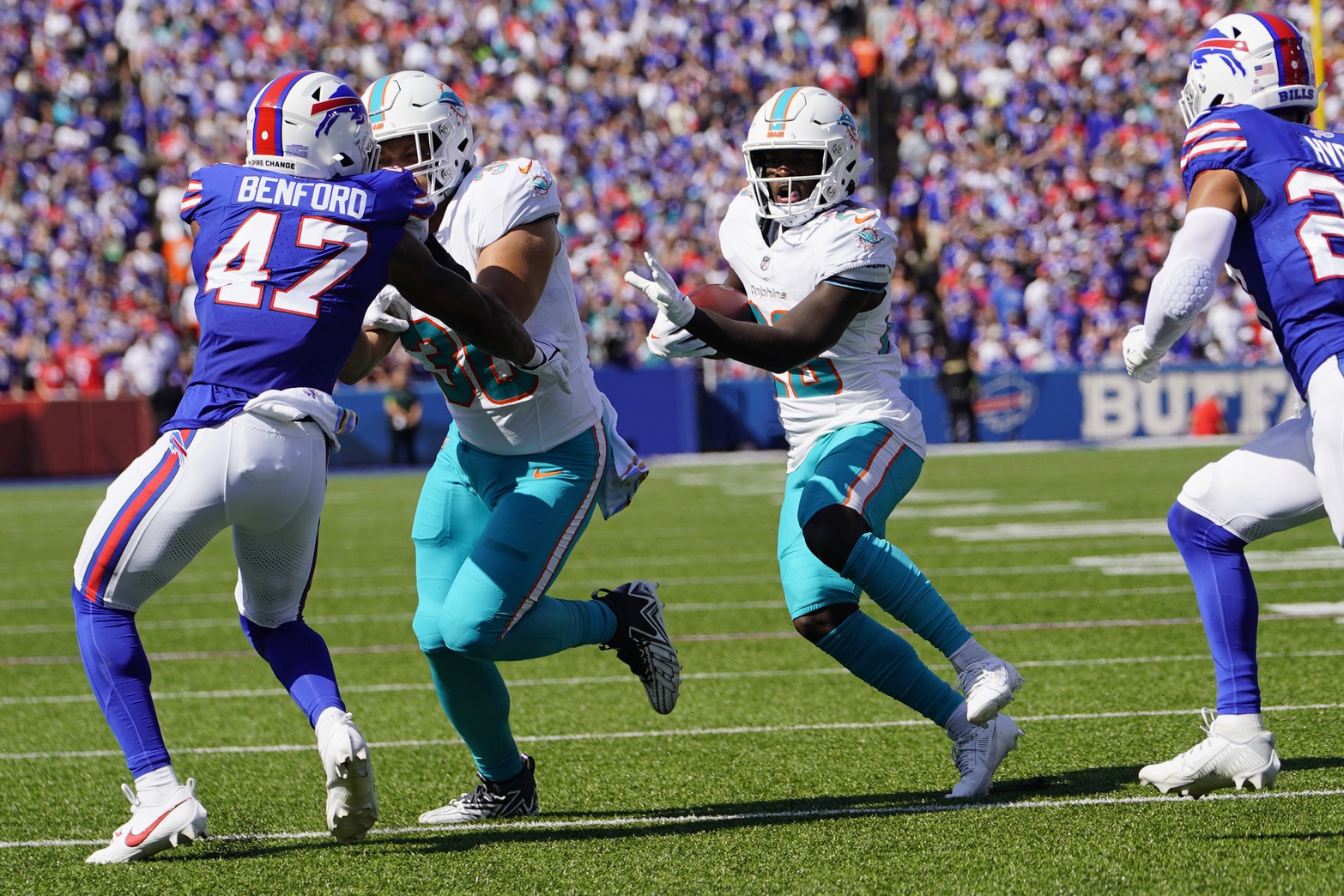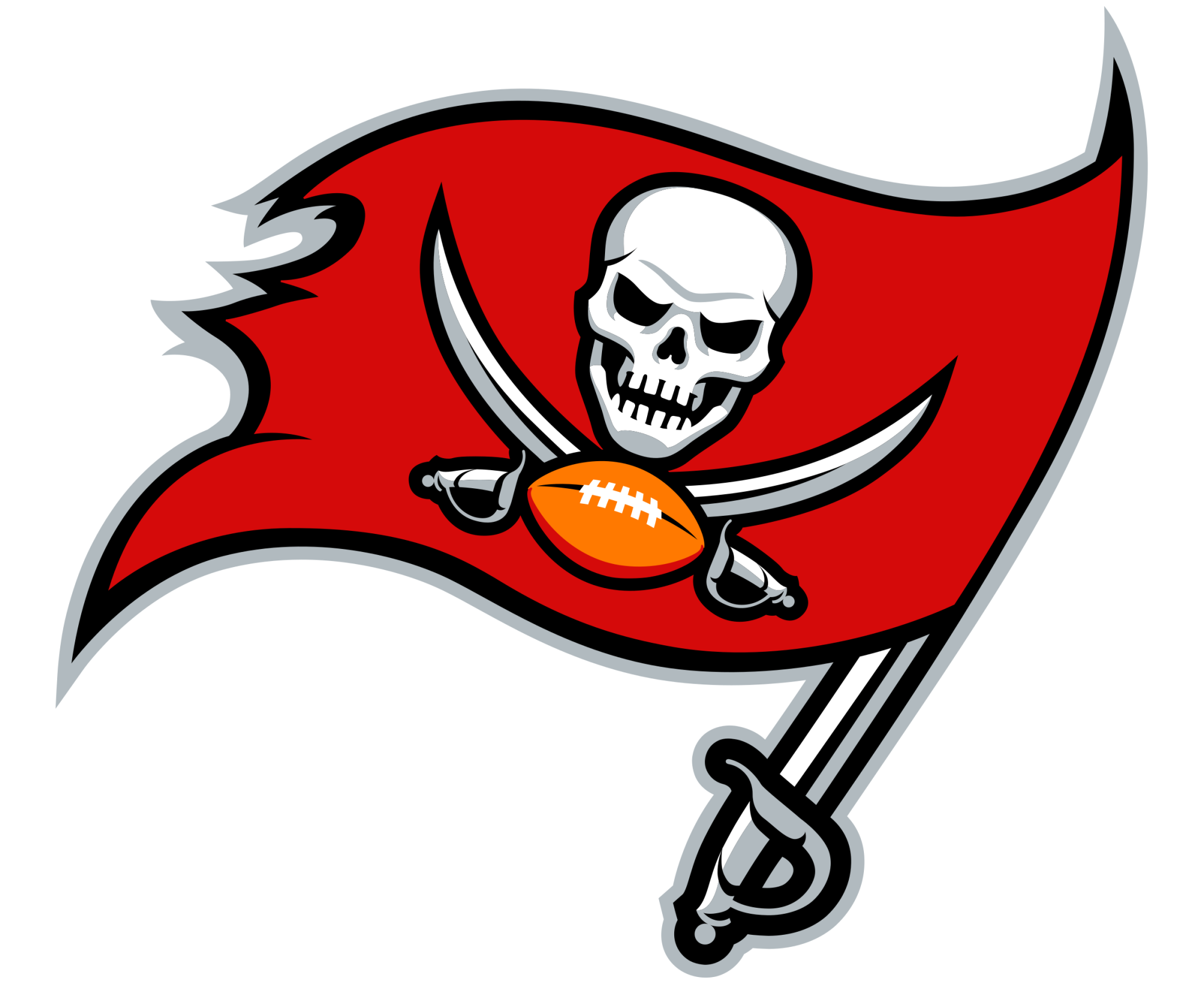Miami Needs To Find A Power Answer To Short Yardage Questions

Mandatory Credit: Gregory Fisher-USA TODAY Sports
In a press conference last week, Miami Dolphins head coach Mike McDaniel was asked about why we hadn’t seen his version of the NFL’s newest offensive trend, the Tush Push.
“We’ve done our due diligence.” McDaniels said. “We’ve had different versions of it to attempt it. But to get really good at something, it has to fit everything that your players are really good at and you have to be all in. If you go and do something because it worked for somebody else and then try to employ it and expect those types of results, you’re probably going to fail.”
The reporter’s question would prove to be somewhat prophetic on Sunday against the Raiders. Despite the victory, the Dolphins once again struggled in short yardage against Las Vegas, failing in key situations that cost them opportunities at points in a low scoring affair.
On fourth and one from the Las Vegas 3 yard line with nine minutes to go in the second quarter, McDaniel and Co. got cute and took a 4 yard loss on a pass out to Tyreek Hill. It’s hard to argue putting the ball in the hands of one the NFL’s most skilled players, but giving up seven points because you can’t get a yard between the tackles hurts immensely in a defensive battle. Then, with a chance to stretch it to a two possession game with 35 seconds left in the third quarter, on third and one the Dolphins drew up another failed pass play. Making things worse the failure was preceded by a different failed pass attempt on second and 1. Two straight attempts to get a yard and you don’t hand it off once?
Making things all the more confusing is the teams ability to actually get a short gain in other scenarios. On a third quarter drive, Miami was twice faced with a second and one. In both situations they handed the ball off to Raheem Mostert and watched him gain four and three yards respectively.
Granted, the team was playing without both of its starting guards, but this failure is not a new trend. Furthermore, every team in the NFL is dealing with injuries and needs to find a way to persevere in tough moments if they want to achieve their goals. Mike McDaniel, a savant of the self scout, has always been phenomenal at identifying he and his team’s weaknesses, yet the problem persists. So what gives?
Maybe this team isn’t built to set up the pass with power running, but they sure as heck are dangerous enough to scare you with the pass in a way that should allow the power running game to succeed in crucial down and distances. And it’s not as if they don’t have the talent. Why is Jeff Wilson even on this roster if you’re not going to use his power in situations like this?
Beyond the micro failures, the macro issue might be more that the teams unwillingness to turn to a power run game is an indication of an inability to succeed against the league’s best. There is no way to hide an inability to pick up short yardage gains when the football turns important in January and February. Sure it might work here and there and the team may occasionally look like the height of offensive innovation, but you just simply won’t be able to get cute consistently against elite teams in the playoffs.
So rather than trying to find new ways to dance around a season-long problem, it may be time for this team to figure out how to succeed at being tough in those situations. Perhaps it’s as simple as trusting Mostert like they did in those second and one situations? Maybe it’s as easy as starting to give Jeff Wilson the short yardage reps? Or maybe, like was suggested last week, it’s time to stop being innovators and start jumping on the copycat train and give the tush push a try? Whatever it is, if Miami wants to have the success that they’ve set out to have, they’re going to have to figure out how to get tough and physical and start going downhill in short yardage situations.</span
Up Next





